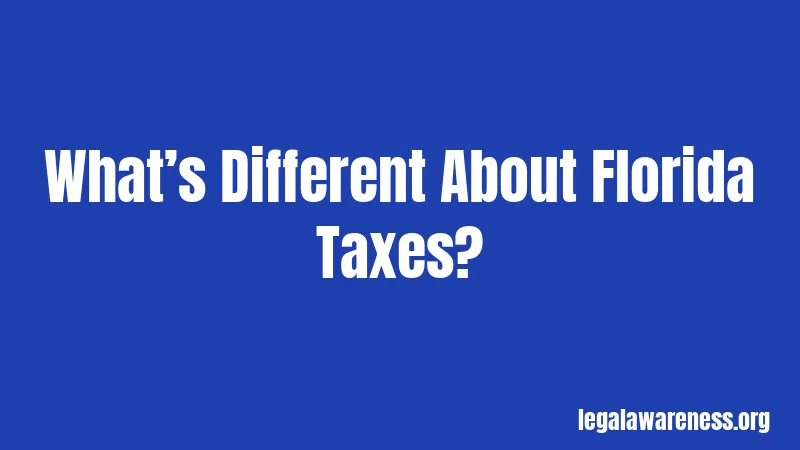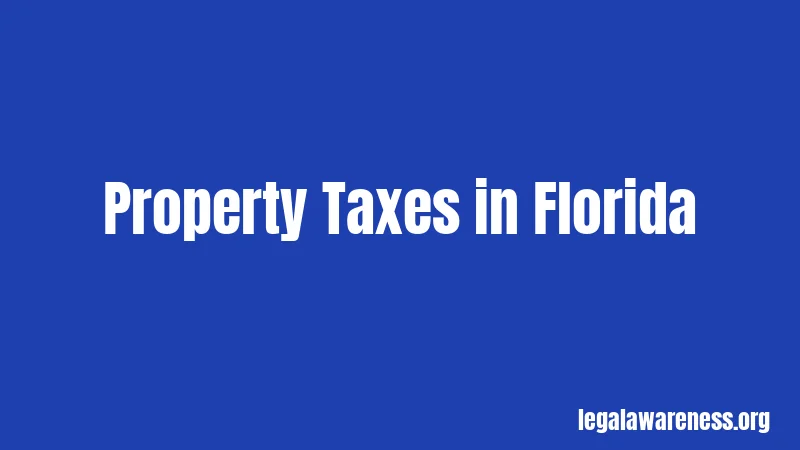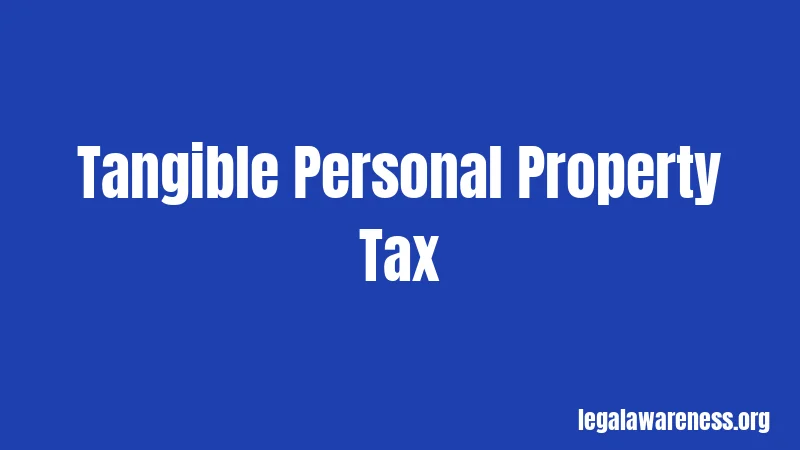Florida Tax Laws in 2026: What Every Resident Needs to Know
Most people don’t realize how different Florida’s tax system is from other states. Seriously. And if you’re moving here or just figuring out your finances, this could save you real money. Let’s break down what Florida taxes actually look like and what you need to know.
Here’s the good news right off the bat: Florida has no state income tax. You read that right. No personal income tax, no state tax on your paycheck. Pretty straightforward, right? But wait, it’s not quite that simple. There are other taxes you’ll definitely need to understand.
What’s Different About Florida Taxes?

Florida is one of just nine states with no income tax. Think of it like a trade-off. You’re not getting taxed on your salary, but the state makes money other ways. They rely on sales taxes, property taxes, and other fees instead. It basically means more of your paycheck stays in your pocket.
But here’s where it gets interesting. Even though you don’t pay state income tax, you still might owe federal income tax to the US government. That’s totally separate from Florida. The state just doesn’t take an extra cut.
Not sure if this applies to you? If you live in Florida and earn money, you’re probably affected by this. If you’re moving here, you’re about to get a pleasant surprise on your taxes.
Sales Tax in Florida
Let’s talk about sales tax. This is probably the biggest tax you’ll actually pay in Florida. The state sales tax is 6%. That means for every dollar you spend, you pay an extra six cents in tax.
But wait, it gets a bit more complicated. Some counties add their own local sales tax on top of the state rate. So your total sales tax could be anywhere from 6% to 7.5%, depending on where you live. Your city or county might add 1% or more. Honestly, this is the part most people don’t realize until they start shopping.
Here’s what you pay sales tax on: pretty much everything you buy. Clothes, food, electronics, furniture, you name it. The money goes straight to the state and local governments to pay for schools, roads, and public services.
What doesn’t get taxed? Good question. Some items skip the sales tax. Groceries you buy at the store are not taxed. Medicine prescribed by a doctor isn’t taxed either. But restaurant food is taxed. So a burger you eat at a restaurant costs more than the same burger you buy at a grocery store and cook at home.
Property Taxes in Florida

Okay, now let’s talk about property taxes. This is important if you own a home or land in Florida. Property taxes are how most local governments pay for schools and other services.
Florida’s property tax rate is one of the lower ones in the country. Your rate depends on what county you live in. Rates range from around 0.7% to 1% of your home’s value. If your house is worth $300,000, you might pay between $2,100 and $3,000 a year in property taxes. That’s not bad compared to other states.
Here’s something important to know. If you’re 65 or older, Florida offers tax breaks on your home. You might qualify for a homestead exemption. This can cut your property taxes significantly. It’s one of the reasons so many retirees move to Florida. Stay with me here, because this exemption can save you thousands of dollars.
The homestead exemption gives you up to $50,000 in tax relief. That basically means the first $50,000 of your home’s value isn’t taxed. If your house is worth $200,000, you only pay property taxes on $150,000. That’s a huge savings.
But you have to apply for it. You can’t just assume you get it. You need to file with your county’s property appraiser by March 1st to get the exemption for that year. Miss the deadline, and you’re out of luck until next year.
Who Has to Pay the Homestead Exemption?
To get the homestead exemption, you need to meet a few requirements. First, you have to live in the home as your main residence. This isn’t for investment properties or vacation homes. It’s only for the place where you actually live.
You also need to be a Florida resident. You can’t own a home here and live in another state and claim the exemption. Basically, this has to be your primary home.
One more thing: if you’re over 65 and own your home, you might qualify for an additional exemption. This is called the senior exemption, and it provides extra tax relief. Some people save thousands of dollars with this benefit.
Tangible Personal Property Tax

Here’s a smaller one that trips people up. Florida taxes certain personal property. Tangible personal property means things you can touch and see. Business equipment, vehicles, boats, and similar items can be taxed.
Not sure what counts as taxable property? That’s a great question. If you run a business and own equipment, desks, computers, and inventory, those items might be taxed. The tax depends on the value of what you own.
The good news? You probably don’t have to worry about this unless you own a business. Most regular people don’t pay tangible personal property tax on their everyday items. Your clothes, furniture, and personal stuff at home aren’t taxed this way.
Corporate Income Tax in Florida
If you own a business, you need to know about this. Florida has no corporate income tax. None. This is huge for business owners. It’s one reason lots of companies move their headquarters to Florida.
But here’s the catch. You still have to file a tax return. Even without income tax, you need to report your business activity to the state. You’ll file what’s called a Florida Corporate Annual Report.
Basically, this is the part important. Even though you’re not paying income tax on your business profits, the state still wants to know what’s going on. File correctly and you’re fine. Don’t file, and you could face penalties.
Self-Employment and Freelance Work
Wondering if this applies to you if you work for yourself? If you’re self-employed or a freelancer in Florida, here’s the situation.
You don’t pay Florida state income tax on your earnings. Great news. But you still owe federal self-employment tax and federal income tax. That’s not Florida’s doing. That’s the US government.
Many self-employed people think they’re off the hook in Florida. They find out the hard way that federal taxes still apply. Don’t be one of them. Set aside money for federal taxes even if you’re not paying state taxes.
Sales Tax on Services
This one’s interesting. In most states, services aren’t taxed. You can get a haircut and not pay sales tax. In Florida, it’s mostly the same. Most services aren’t taxed.
But there’s a twist. Some specific services are taxed. Repairs to tangible items, for example, can be taxed. If you get your car fixed, you might pay sales tax on the repair bill. If you get your phone repaired, same thing.
So what exactly gets taxed? Repairs, improvements, and modifications to physical items usually do. But consulting, legal advice, and most professional services don’t. Pretty straightforward, but worth knowing if you’re budgeting.
Income From Retirement Accounts
Here’s good news for retirees. Florida doesn’t tax income from certain retirement accounts. If you’re receiving money from an IRA or a 401(k), you don’t pay Florida state tax on it.
This is huge for people who’ve moved to Florida to retire. You can draw from your retirement savings and keep all of it. No state tax taking a piece. This is literally one of the biggest reasons retirees love Florida.
But federal taxes still apply. The IRS still wants their cut of your retirement income. Just not the state of Florida.
Recent Changes and Updates
Florida’s tax laws don’t change dramatically every year, but stay aware of updates. As of 2026, the state sales tax rate remains at 6% plus local additions. Property tax rates and homestead exemptions haven’t changed recently, but it’s smart to double-check with your county.
The biggest change in recent years was actually about rent. Starting in 2021, residential rent wasn’t subject to sales tax in Florida anymore. This applies to long-term residential leases. So if you’re renting an apartment, you’re not paying sales tax on your monthly rent.
How to Pay Your Taxes
Got questions about actually paying? Okay, pause. Read this carefully. Florida taxes aren’t all paid the same way.
Sales tax is collected automatically when you make purchases. You don’t write a check. The store collects it and sends it to the state.
Property taxes are different. If you own a home, you get a bill from your county once a year. You can pay online, by mail, or in person. Most people set up autopay so they don’t miss the deadline.
Business taxes work differently too. If you own a company, you’ll file annual reports and pay any applicable taxes through the state’s website. Everything is pretty much online now, which makes it easier.
Federal income tax you owe gets taken out of your paycheck if you’re employed. If you’re self-employed, you need to make estimated quarterly payments to the IRS. That’s not a Florida thing, but it’s important to know.
Special Circumstances and Exemptions
Are you a veteran? Florida offers property tax exemptions for disabled veterans. Depending on the severity of your disability, you might get a total or partial exemption. This is one of the most generous veteran benefits in the country.
What about non-profits? If you run a non-profit organization, you might not owe property tax on your building. But you have to apply and meet specific requirements. Basically, your organization has to be charitable and serving the public good.
Religious organizations also get special treatment. Churches and religious institutions are usually exempt from property tax. Again, you have to file the paperwork and qualify, but the potential savings are significant.
Frequently Asked Questions
Do I pay state income tax if I move to Florida? No, Florida has no state income tax. Once you establish residency, you won’t pay state income tax on your income.
Can I claim the homestead exemption if I own a vacation home in Florida? No, the homestead exemption only applies to your primary residence. Vacation properties and investment homes don’t qualify.
Is Social Security taxed in Florida? No, Social Security income isn’t taxed by Florida. The state doesn’t tax retirement income.
What if I earned income in another state but live in Florida? You might still owe taxes to that other state for the income you earned there. Check with that state’s tax authority. Florida won’t tax you, but other states might.
How do I apply for the homestead exemption? Contact your county property appraiser’s office. You can apply online, by mail, or in person. You’ll need to prove you live in the home as your primary residence.
What happens if I move out of Florida? You lose your homestead exemption and your exemption status changes. Notify the property appraiser when you leave.
Are there taxes on inheritance in Florida? Florida has no state inheritance tax or estate tax. However, the federal government might tax large estates.
Do renters pay any special taxes in Florida? No, Florida doesn’t tax rent anymore. But you still pay sales tax on other purchases.
Final Thoughts
Alright, here’s what you need to remember about Florida taxes. No state income tax is a huge advantage. You keep more of your paycheck than you would in most states. But you do pay sales tax, property tax, and possibly other taxes depending on your situation.
If you own a home, understand property taxes and the homestead exemption. If you’re retired, take advantage of the retirement income exemption. If you run a business, remember that you don’t pay corporate income tax, but you still need to file reports.
The bottom line? Florida’s tax system is simpler than most states, but it’s not zero taxes. Know the rules, file what you need to file, and take advantage of the exemptions available to you. When in doubt, talk to a tax professional or visit the Florida Department of Revenue website. Now you’ve got the basics covered.
References
Florida Department of Revenue – Official State Tax Information
Florida Property Appraiser Association – Homestead Exemptions
Florida Statutes Chapter 192 – Property Tax Law
